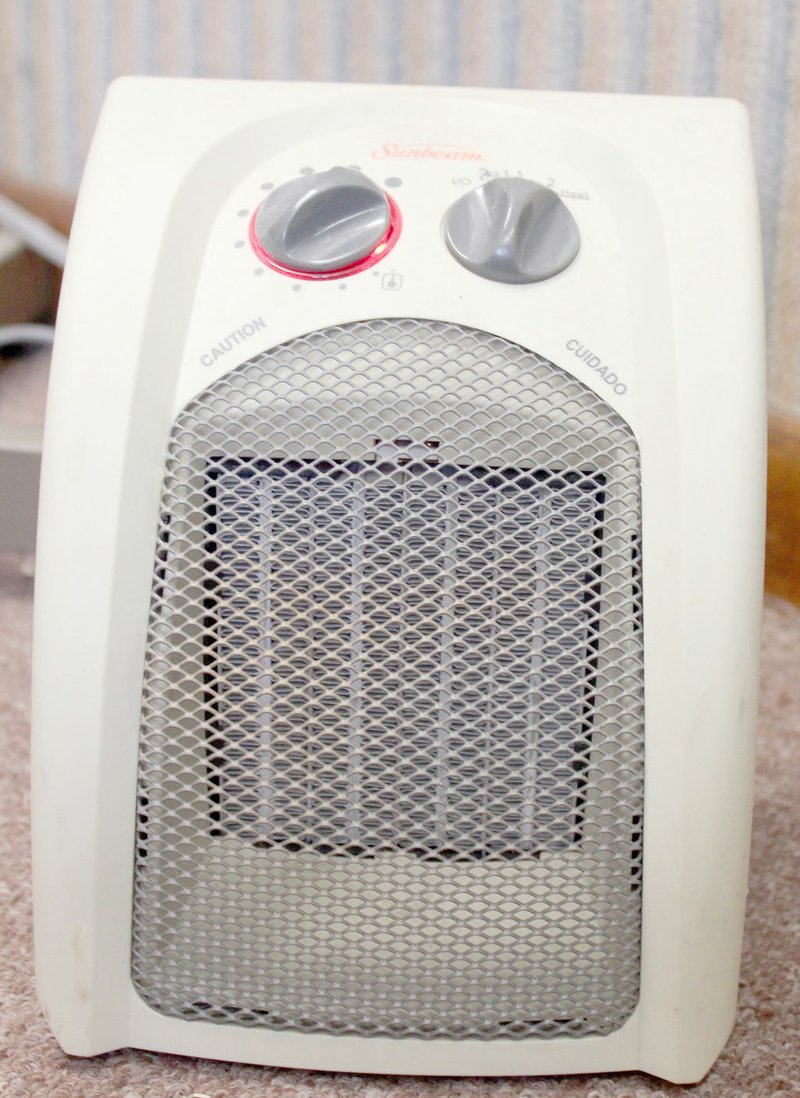With an unusually cool winter, Bella Vistans are working harder to heat their homes and increasing their risk of fire if they're not doing so carefully.
Fire chief Steve Sims said the department has seen an increase in fires in late 2017 and early 2018. Residents need to be careful with home heating, he said.
According to a National Fire Protection Association report, home heating devices were a leading cause of home structure fires from 2010-2014. Heating equipment caused 16 percent of these fires, second only to cooking equipment, which caused 46 percent of fires. Additionally, heating equipment fires caused 19 percent of home fire civilian fatalities and 12 percent of home fire injuries for this time period.
Sims said chimney flues need to be cleaned and inspected by a specialist each year they are used to ensure they are safe to use. And, if there's a fireplace in use, a proper screen should be in place to keep burning bits off the carpet.
Other heating systems should be checked and used properly, he said. A propane heater, for instance, should have all its connections checked to ensure there are no leaks, he said.
The manufacturer's instructions, he said, should be followed closely for any type of heating device.
Beyond that, he said, the area around space heaters and other heating devices should be kept clear. Nothing that can ignite should be kept near the devices, he said, because it can dry out and then ignite. The Bella Vista Fire Department, he said, has responded to fires that were caused by clothing piled up near space heaters.
Smoke and carbon monoxide detectors, Sims said, are also essential this time of year. In addition to fires, he explained, a faulty heating device, particularly one that uses an open flame, can put out carbon monoxide.
"It's a poisonous gas that can kill you in your sleep without you even knowing it," he said.
Electrical fires also become more common during the winter, he said, because residents are using heaters and new toys alongside all the usual appliances. It's important to be aware of outlet, power strip and breaker box limitations, he said, and avoid overloading them because this can increase resistance, which leads to increased heat and possible fire.
Another concern this time of year is frozen bodies of water. If there's ice on the lakes, he said, it probably isn't safe to walk or skate on and certainly isn't worth the risk; and people should resist any temptation to test it.
"It keeps us from having to risk our lives to save their lives," he said.
Another winter hazard, he said, is freezing pipes. It's important to keep hoses disconnected from outdoor spigots, he said, because the water in the hose can freeze and lead to freezing inside the pipes, which can cause them to burst. Leaving a tap dripping, he said, can help keep water flowing and prevent freezing.
It's possible, he said, for damaged pipes to be relatively minor and not readily visible.
"You may not notice until it causes damage," he said.
In a more general sense, he said, it's never a bad time to practice escape routes with the family. Getting a plan for a fire, he said, could save a family member. It's worth including a safe rendezvous point, he said, because this allows family members to arrive at one place, even if they get separated, and know with relative certainty whether the residence has been fully evacuated.
Anyone using fire extinguishers, Sims said, needs to check them annually and be sure they're reading at adequate pressure. A decade-old extinguisher, he said, should probably be replaced.
Prime extinguisher locations, he said, include the garage, near the kitchen and near exits. Having one near an exit may help prevent residents from being cut off from a way out of the house, he explained.
General News on 01/10/2018
